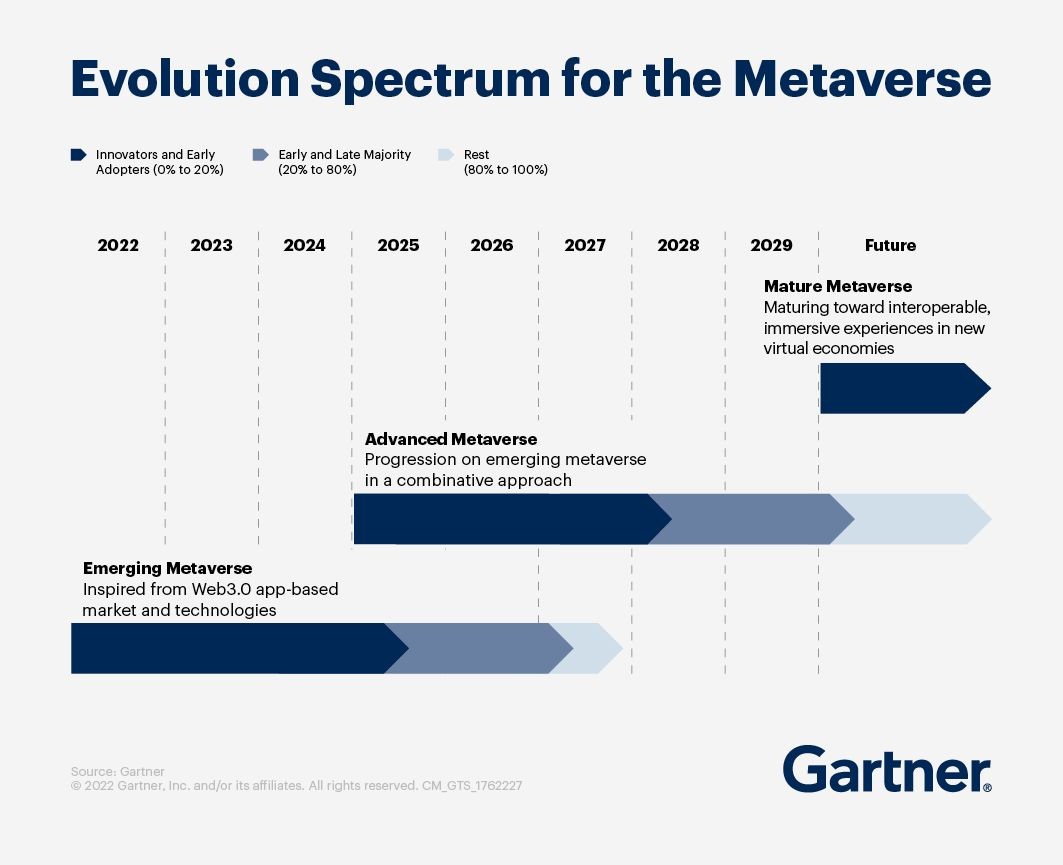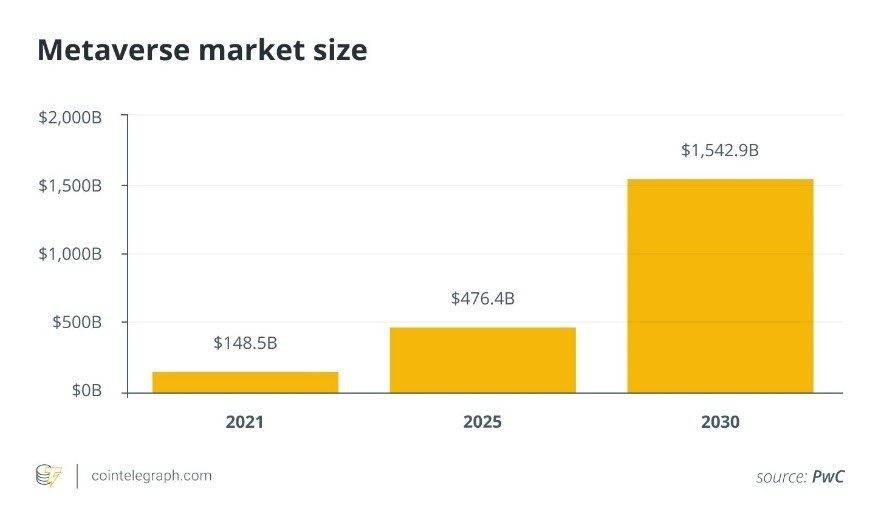Any new technology involves a certain amount of ambiguity and myths. In the case of the Metaverse, however, many of the myths have been exaggerated and facts were misrepresented, while the Metaverse vision will take years to mature fully, the building blocks to begin this process are already in place. Key hardware and software are either available today or under development; and definitely stakeholders need to address Safety, Security and Privacy (SSP) concerns, and collaborate to implement open standards that will make the Metaverse safe, secure, reliable and interoperable, and allow the delivery of secured and safe services as seamlessly as possible.
Despite the buzz about the Metaverse, many still don’t completely understand it. For some, it is the future, while others think it is gimmicky. For now, the Metaverse is an interface or a platform that allows digital realities of people to come together to work, play and collaborate. Metaverse hopes to transcend geographical boundaries and become the next ‘thing’. That said, there are plenty of misconceptions about the Metaverse, and here are a few [6]:
Myth #1: No One Knows What is the Metaverse
In recent months, it has become clear that there is no single definition of the Metaverse. Well-known experts refer to it as “the internet of the future” or point to immersive devices to demonstrate various platforms and user experiences. [2]
In simple terms, the Metaverse is the future of the internet: A massively scaled, interactive and interoperable real-time platform comprising interconnected virtual worlds where people can socialize, collaborate, transact, play and create. There are 5 billion internet users in the world and crypto has emerged as both the infrastructure layer and the zeitgeist that will fill in the blanks: digital currency, fully functioning digital economies, ownership of digital goods and true interoperability across countless interconnected systems, all this defines the Metaverse [3].
Myth #2 The Metaverse is Only Gaming
The Metaverse is not gaming. Gaming is an activity you can do within the Metaverse, there are 3 billion gamers in the world. Today, when people talk about the Metaverse, they often describe gaming platforms like Roblox, and Minecraft as examples. While gaming remains one of the leading experiences, consumers are increasingly looking for entertainment and shopping in the virtual world. One in five Metaverse users has attended virtual live events such as concerts and film festivals. [4]
Myth #3 The Metaverse is Only Virtual Reality
Saying the Metaverse is virtual reality (VR) is like saying that the internet is only your smartphone, it’s a way of interfacing with the internet. In the same way, you can imagine experiencing the Metaverse through VR, but you can also imagine experiencing the Metaverse through your laptop or desktop. [4]

Myth #4 The Metaverse Will Replace the Real World
No, this is not the “Matrix”, the Metaverse won’t replace the real world. It will be additive to the real world, an expansive virtual environment where you can do any number of different things: work, socialize, play, create, explore and more. [4]
Myth #5 The Metaverse is a Fad
The Metaverse is a fad in the same way the internet considered as a fad at some point of time. We’re still years away from a fully realized Metaverse and the technology we’ll need is far from complete. But even today, we’re already living in a very primitive version: we work remotely, we socialize and learn virtually and we find entertainment without leaving our homes. However, as always, how we meet those needs will continue to evolve as our technology advances. [4]
Myth #6 The Metaverse Will Be a Monopoly
Companies like Meta and Microsoft are two of the world’s most valuable companies because they’re perceptive. They have a skill for skating to where the puck will be and they’re able to scale fast. But jumping on the bandwagon early doesn’t mean they’ll control the Metaverse, the field is to big to be controlled by handful companies. [4]
Myth #7 The Speed of Technology Will Set the Pace for Adoption
Many people believe that the broad adoption of the Metaverse is hindered because technology is not keeping pace. There remains low penetration of immersive devices among consumers, and there are infrastructure barriers in the way of a truly scaled, immersive Metaverse future. Close to one-third of Metaverse users see technology as severely limiting their dream experience.
#VR is the most accessible technology at just 20 percent penetration, yet the adoption curve to date follows the trajectory of other technologies that became widely available over time. Penetration for recent breakthroughs such as smartphones, tablets, and social media grew from 20 percent to 50 percent in only a handful of years. Lower cost, increasing content, and improved usability are driving adoption. [4]
Myth #8 The Metaverse is Already Here
The Metaverse is an infinitely large (future) virtual world that connects all other virtual sub-worlds. You can see the Metaverse as the next phase of the internet as we know it: the currently two-dimensional, flat Internet will be changing into a three-dimensional, spatial form. We are moving from the web of pages to the web of coordinates. And from the web of information to the web of activities. In the future, people can meet as avatars in the Metaverse, to get to know each other for example, to network, provide services, collaborate, relax, game, shop and consume. The Metaverse also offers the opportunity to build, create and participate in a virtual economy. In the future, we won’t be going “on” the Internet, but “in” the spatial Internet. The Metaverse can be seen as the world that connects all (existing) virtual worlds. That world, however, isn’t here yet, the Metaverse is still a thing of the future. [5]
Myth #9 The Metaverse is Inevitable
It is clear that the Metaverse is actively being developed. The key players in the world of technology have their eyes on it. But they are facing a number of challenges; interoperability for example – where users must be able to move easily between different worlds – being one of them. This means that companies must work intensively on open standards. In the Metaverse, you have to be able to work, attend concerts and play games with the greatest of ease. Not such an easy feat, particularly because many companies will be reluctant to collaborate on open standards and give up their intellectual property. In addition, the growth of the Metaverse will also require substantial hardware innovations. [5]
Myth #10 The Metaverse is Suitable for Everything
This is another aspect that remains to be seen. In the future, the different variants of the internet will simply coexist – just as you sometimes read a book on paper, and sometimes on your screen. The internet as we know it will continue to exist. It will be accessible on your smartphone, computer or tablet. For some things such as shopping, playing games, and social interaction, the #metaverse will be extremely suitable. [5]
What is The Future of the Metaverse?

The Metaverse “is bringing together people, processes, data, and things (real and virtual) to make networked connections more relevant and valuable than ever before-turning information into actions that create new capabilities, richer experiences, and unprecedented economic opportunity for businesses, individuals, and countries”. In simple terms, the Metaverse is the intelligent connection of people, processes, data, and things. It describes a world where billions of objects have sensors to detect, measure, and assess their status, all connected over public or private networks using standard and proprietary protocols.[1]
Data is embedded in everything we do; every business needs its flavor of data strategy, which requires comprehensive data leadership. The Metaverse will create tens of millions of new objects and sensors, all generating real-time data which will add more value to their products and services for all the companies who will use Metaverse as another avenue of business. As a result, enterprises will make extensive use of Metaverse technology. As a result, there will be a wide range of products sold into various markets, vertical and horizontal, an endless list of products and services.
For example, in e-commerce, the Metaverse provides a whole new revenue stream for digital goods in a synchronous way instead of the current traditional 2D way of clicking and buying. In human resources (HR), significant training resources will be done with virtual reality (VR) and augmented reality (AR) that are overlaying instructions in a real-world environment and giving somebody a step-by-step playbook on how to put a complex machine together or run a device or try a new product all will be done with virtual objects at the heart of the Metaverse. While in sales/marketing, connecting with customers virtually and sharing the virtual experience of the product or service will be common similar to our virtual meetings during the past two years in the middle of Covid, but the Metaverse will make it more real and more productive.
Finally, similarly to Cloud Computing, we will have Private-Metaverse, Hybrid-Metaverse, and Public-Metaverse with all possible applications and services in each type. Companies will benefit from all options based on their capabilities and needs. The main goal here is to reach Metaverse as a Service (MaaS) and add a label of “Metaverse Certified “on products and services. [1]

Ahmed Banafa, Author the Books:
Secure and Smart Internet of Things (IoT) Using Blockchain and AI
Blockchain Technology and Applications
References
[1] https://www.bbntimes.com/science/the-Metaverse-a-different-perspective
[2] https://www.mckinsey.com/industries/retail/our-insights/probing-reality-and-myth-in-the-Metaverse
[3] https://venturebeat.com/2022/03/24/5-common-Metaverse-misconceptions/
[4] https://www.mckinsey.com/industries/retail/our-insights/probing-reality-and-myth-in-the-Metaverse
[5] https://jarnoduursma.com/blog/7-misconceptions-about-the-Metaverse/
[6] https://analyticsindiamag.com/misconceptions-about-Metaverse-mark-zuckerberg-virtual-reality-augmented-real-world-gaming/
Also read:
Facebook or Meta: Change the Head Coach
The Metaverse: A Different Perspective
Share this post via:






TSMC vs Intel Foundry vs Samsung Foundry 2026